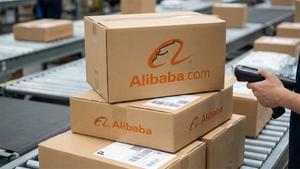J.D. Power:
The Retail Sales Forecast
New-vehicle retail sales for July 2022 are expected to decline when compared with July 2021, according to a joint forecast from J.D. Power and LMC Automotive. Retail sales of new vehicles this month are expected to reach 988,400 units, a 10.8% decrease compared with July 2021 when adjusted for selling days. July 2022 has one less selling day compared with July 2021. Comparing the same sales volume without adjusting for the number of selling days translates to a decrease of 14.1% from 2021.
The Total Sales Forecast
Total new-vehicle sales for July 2022, including retail and non-retail transactions, are projected to reach 1,159,700 units, a 5.7% decrease from July 2021. Comparing the sales volume without adjusting for the number of selling days translates to a decrease of 9.2% from 2021.
The seasonally adjusted annualized rate (SAAR) for total new-vehicle sales is expected to be 13.7 million units, down 0.9 million units from 2021.
The Takeaways
Thomas King, president of the data and analytics division at J.D. Power:
“July is yet another month where supply constraints keep vehicle sales artificially low but deliver record transaction prices and dealer profitability. July 2022 is on track to be the ninth consecutive month that retail inventory closes below 900,000 units as anticipated improvements in vehicle production volumes fail to materialize. The industry sales pace is simply a function of the number of vehicles being delivered to dealers each month, with a large portion of those vehicles being sold before they arrive at the dealership. This month, 55% of vehicles will be sold within 10 days of arriving at a dealership, while the average number of days a new vehicle is in a dealer’s possession before being sold is on pace to be 19 days—down from 29 days a year ago.
“For July, new-vehicle prices continue to hover near record levels, with the average transaction price expected to reach $45,869—a 12.3% increase from a year ago—the second highest on record.
“Consequently, even though the sales pace is down 10.8% year over year, consumers will still spend nearly $45.3 billion on new vehicles this month, the second-highest level ever for the month of July but slightly down 3.5% from July 2021 due to the reduced sales volume.
“Unsurprisingly, the lack of inventory is leading to even smaller discounts from manufacturers. The average incentive spend per vehicle is tracking toward $894, a decrease of 54.7% from a year ago. This will mark the third consecutive month under $1,000 and the first time under $900. Incentive spending per vehicle expressed as a percentage of the average vehicle MSRP is trending toward a record low of 1.9%, down 2.7 percentage points from July 2021 and the first time below 2.0%. One of the factors contributing to the reduction in incentive spending is the absence of discounts on vehicles that are leased. This month, leasing will account for just 17% of retail sales. In July 2019, leases accounted for 29% of all new-vehicle retail sales.”
“Higher prices and smaller discounts, coupled with rising interest rates, mean monthly loan payments on new vehicles have reached an all-time high, breaking the $700 level for the first time. The average monthly finance payment in July is on pace to hit a record high of $708, up $81 from July 2021. That translates to a 12.8% increase in monthly payments from a year ago, which is above the 12.3% increase in transaction prices. This is the first month since December of 2019 that the percentage growth of monthly payments has exceeded the percentage growth in transaction prices. This is mostly due to rising interest rates. Average interest rates for new vehicle loans continue to accelerate and are expected to increase 104 basis points from a year ago to 5.31% in July.
“The increase in monthly loan payments would be higher were it not for the ongoing strength of used-vehicle values, which increase the amount of trade-in equity new-vehicle buyers are bringing to their next purchase. The average trade-in equity for July is trending to maintain a near record high level of $10,083, a 37.4% increase from a year ago and the second consecutive month above $10,000.
“Total retailer profit per unit—inclusive of grosses and finance and insurance income—is on pace to reach a monthly record of $5,023, an increase of $815 from a year ago. Nine of the past 10 months have seen retailer profit per unit at or above $5,000. This elevated per-unit profit level is more than offsetting the drop in sales volume as total aggregate retailer profits from new-vehicle sales for the month of July is projected to be up 2.5% from July 2021, reaching $5.0 billion, the best July ever and the fourth-highest amount of any month on record.
“In August, the overall industry sales pace will continue to be constrained by procurement, production and distribution challenges. Consumer demand remains markedly higher than supply, all of which points to a continuation of the current marketplace dynamics of depressed sales volumes but record pricing and profitability. Longer term, the inevitable increase in production levels, coupled with higher interest rates and weakening economic conditions will likely lead to a rebalancing of the current volume/price dynamic. That said, the significant levels of pent-up demand for new vehicles mean the industry is generally well positioned to continue delivering strong financial results, despite the fact economic conditions and rising interest rates will cause some potential buyers to defer new-vehicle purchases.”
Sales & SAAR Comparison
|
July 20221, 2 |
June 2022 |
July 2021 |
Retail Sales |
988,426 units
|
948,314 units |
1,150,540 units |
Total Sales |
1,159,727 units
|
1,129,331 units |
1,277,641 units |
Retail SAAR |
11.3 million units |
11.1 million units |
12.7 million units |
Total SAAR |
13.7 million units |
13.0 million units |
14.6 million units |
1 Figures cited for July 2022 are forecasted based on the first 19 selling days of the month.
|
|||
The Details
- The average new-vehicle retail transaction price in July is expected to reach $45,869. The previous high for any month—$45,988—was set in June 2022.
- Average incentive spending per unit in July is expected to reach $894, down from $1,975 in July 2021. Spending as a percentage of the average MSRP is expected to fall to a record low of 1.9%, down 2.7 percentage points from July 2021.
- Average incentive spending per unit on trucks/SUVs in July is expected to be $900, down $1,017 from a year ago, while the average spending on cars is expected to be $871, down $1,295 from a year ago.
- Buyers are on pace to spend $45.3 billion on new vehicles, down $1.7 billion from July 2021.
- Truck/SUVs are on pace to account for 79.3% of new-vehicle retail sales in July.
- Fleet sales are expected to total 171,300 units in July, up 40% from July 2021 on a selling day adjusted basis. Fleet volume is expected to account for 15% of total light-vehicle sales, up from 10% a year ago.
- Average interest rates for new vehicle loans are expected to increase 104 basis points from a year ago to 5.31% in July 2021.
Residual Value Outlook
Eric Lyman, vice president, ALG:
“ALG forecasts that new 2022 model-year vehicles will retain 82% of MSRP in calendar year 2023, which is a staggering 18 percentage points higher than the five years prior to the pandemic. This is due not only to the rise in new- and used-vehicle prices, but also to the drop in used supply associated with daily rental fleet units. By calendar year 2027, much of these gains will subside as pent-up demand is satisfied and new and used vehicle inventories rise, leading to declines in overall used market values.”
Global Sales Outlook
Jeff Schuster, president, Americas operations and global vehicle forecasts, LMC Automotive:
“Strong sales in China and India led global light-vehicle sales to positive gains in June, up 1.3% from June 2021. Volume hit 7.2 million units and the selling rate came in at 85.1 million units, the highest level since April 2021 and an increase of nearly 10 million units from the May selling rate. The reopening from lockdown—combined with an incentive on new sales—led China to a record selling rate of 32.9 million units in June and a volume increase of 30% year over year. India also continued to recovery at a robust rate with a 29% sales increase from June 2021. The ASEAN market was up 45% from lockdown-affected June 2021. Despite positive gains across parts of Asia, most of the rest of the world continued to be affected by supply shortages, posting negative year-over-year comparisons. Europe was down 23% and North America was down 12%.
“The sales pace in China is expected to remain strong in July, with a selling rate of 29 million units and volume up 5% from July 2021. However, we don’t expect that to be enough to overcome weakness elsewhere. Global light-vehicle volume is expected to be down 2.5%, but the selling rate should remain above 80 million units to 83 million.
“For 2022, global sales have been trimmed slightly from last month. Global sales volume is now expected at 80.8 million units, down 0.8% from 2021 and a cut of 800,000 units from last month. China sales have been increased since last month, but we have cut North America and Europe further. While there is near-term upside potential in China, we believe volume will cool as inventory becomes tight, given strength of demand. That risk combined with further downside in Europe and North America, keeps risk elevated for the remainder of 2022 and into 2023.”
About J.D. Power and Advertising/Promotional Rules www.jdpower.com/business/about-us/press-release-info
About LMC Automotive www.lmc-auto.com
View source version on businesswire.com: https://www.businesswire.com/news/home/20220727005336/en/
Contacts
Geno Effler, J.D. Power; West Coast; 714-621-6224; media.relations@jdpa.com
Emmie Littlejohn, LMC Automotive; Troy, Mich.; 248-817-2100; elittlejohn@lmc-auto.com




